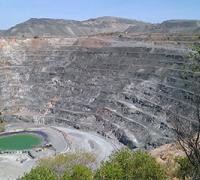Seminar: Security in uranium production
Most attention in nuclear security and nonproliferation has focused on restricting the highest risk material, but recent shifts in the market for natural uranium will introduce new challenges for export controls, transport security, physical protection and tracking of materials.
For example, long-standing consumers such as Japan and Germany are shifting away from nuclear energy while the ambitious nuclear energy programmes of China and Russia may soon increase global demand for natural uranium. Meanwhile, new suppliers (i.e. Greenland, Malawi and Tanzania) and consumers (India and Iran) are entering the global market.
These shifting geographies raise issues such as transport security in regards to new supply routes, actors and costs; how to build national uranium regulatory systems from scratch; and the application of current export controls to countries outside of the Nuclear Non-Proliferation Treaty (NPT). At the same time, International Atomic Energy Agency (IAEA) has been ‘moving up’ its safeuards system to capture more and more of the front end, creating new obligations for state regulatory authorities, industry and facility operators and new verification responsibilities for the IAEA.
King's College London has partnered with the Danish Institute for International Studies (DIIS) and other international think-tanks in the on-going "Governing Uranium" project to explore the dimensions of security of natural uranium in a changing global market. Please join us for a discussion with Dr. Cindy Vestergaard, senior researcher at the Danish Institute for International Studies, on the results of the ‘Governing Uranium’ project thus far.

